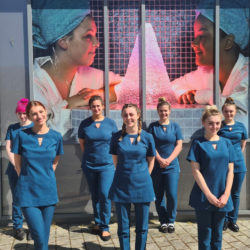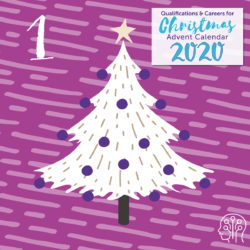World Suicide Prevention Day takes place each year on September 10th. The World Health Organisation reported that, globally, one person dies by suicide approximately every 40 seconds. For everyone who died, there may be more than 20 others who have attempted to end their lives. This, coupled with the turbulence of the pandemic, shows that something must be done to aid the public’s mental health and wellbeing.

This year’s theme for world suicide prevention day is creating hope through action. And with the hairdressing, barbering and beauty industry being so renowned for their compassionate and customer-centric approach, there is no one better poised to bridge the gap between desperation and professional help for the people that need it. This is a sentiment that resonates with Salome Williams from Champneys Beauty College. Speaking as one of our incredible guests at our mental health and suicide prevention webinar earlier this year, she said, “A lot of the young people that we see that are choosing this profession are doing so partly because they love the practical side but also because they are “people, people” and they are the type of people that people will talk to.”
A trip to the hairdressers, barbers, or beauty therapist is more than a service for many. It can be their safe space to talk. General small talk can quickly lead to clients disclosing their deepest, darkest thoughts and anxieties.
Gemma Tracey, from Champneys Beauty College, echoes this sentiment. “When we think about going for our haircut or when we think about going for a treatment, think about how we feel. Think about the reactions when we sit in the chair. We put on our protective cape, and it becomes a place where we can go into our safe zone and talk about anything and everything. Things we don’t talk to our families about.”
Lion’s Barber Collective founder, Tom Chapman, said, “I feel that we are the secret. We are the key to looking after the nation’s mental health. Everybody can access a beauty therapist, a hairdresser or a barber – whoever it may be. It’s accessible to everybody. It’s on every single high street, whether you’re a tiny village or a big city, we are affordable to most people, and it’s a non-stigmatised safe place to be. So if we can train all the professionals, we can look after the nation.”
So, how can hairdressers and beauty therapists support mental health and wellbeing?
For Cleo Mccormack, it’s about asking the question, being patient and just listening. “One of the biggest questions I get asked is: I don’t know what to say when someone’s lost someone or having issues with their mental health. And I remind people that you don’t have to say anything. You just have to listen”.
As hairdressers’ and beauty therapists’ main job is to solve and fix personal care problems for clients, it’s natural for the supportive people in this industry to feel the need to fix the mental health issue someone might have. But it’s important to remember that it’s not about having all of the answers but to give people space to open up. Cleo elaborates, “If you ask a question, just let it sit there, even if no response ever comes. Because even if there’s a silence, the person is likely just still processing. It could only be 2 minutes, but they’re actually thinking about it, and if they say something and you don’t know, that’s okay. You don’t ever have to have the answers to fix everything- you just have to listen.”
It’s important to remember that hair and beauty practitioners aren’t replacing professional help for mental health issues. However, the close contact they have with clients presents a unique opportunity not only to be a listening ear but also to signpost clients to seek help for mental health issues. With the right training, skills and knowledge, the personal care industry could bridge the gap between silence and seeking help.
In fact, figures show that whilst only 13% of people in the UK have received mental health training, 69% agree that emotional wellbeing is a crucial core skill to have. Showing that people are desperate to gain the skills to support themselves and the people around them.
But what can we do to make sure that personal care practitioners have these skills and tools?
As well as using the tried and tested strategies shared by industry experts Cleo, Tom, Salome and Gemma in our webinar, you can also gain a qualification in Mental Health Awareness.
iTEC and VTCT have developed a suite of mental health awareness qualifications to arm the industry with the tools they need to take action when they have concerns about a client’s mental health and wellbeing. Through education, our industries can understand mental health and wellbeing and recognise the signs and symptoms of conditions like depression, anxiety and more.
We can all do our small part to destigmatise mental health issues, from asking someone if they are okay and really listening to them to educating yourself and others about how to spot the signs of mental ill-health where to signpost someone for extra support.




